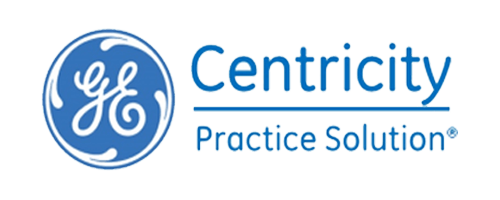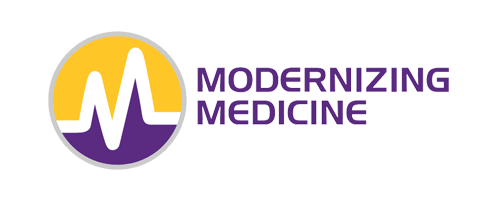When many people think about cardiology, they often focus only on heart-related procedures such as cardiac catheterization, stent placement, bypass surgery, or echocardiograms. But, behind these treatments is an important process that patients rarely see—prior authorization, a process in which insurance companies must approve certain tests or procedures before they are performed.
The process is submitted for checking if the patient needs medical treatment and controls its cost, which often causes treatment delays, extra paperwork, and frustration for both healthcare providers and patients.
Similarly, due to frequent regulation of changes and complex documentation requirements, the process of prior authorization gets even more overwhelming to handle. That's why many healthcare providers and their administrative staff are constantly exhausted through overworking while losing their revenue.
So, the big question is—how can cardiologists overcome prior authorization delays and strategies to ensure faster clearance? In this blog, we will talk about the right approach that ensures timely approvals for your cardiology treatments.
Simplifying the Meaning of Cardiology Prior Authorization
Cardiology prior authorization involves getting approval from the insurance provider before providing any form of treatment or prescription for a patient with heart-related disease. This means cardiologists must provide the required document that shows the patient needs the medical procedure they suggested.
After submitting prior authorization, the insurance company decides if they will cover what the cardiologist recommended to their patients under their insurance plan. Simply put, the process is where healthcare providers ask insurance companies for permission before treating or recommending medication to a patient.
After submission and review, the insurance company may deny or approve the prior authorization. If approved, the treatment will be done, and the cost will be covered by the insurer. If denied, the provider can appeal against the decision or explore alternative treatment options.
Why the Prior Authorization Process Had to Change
Healthcare often faces problems because of the complexity of the prior authorization process. According to many surveys and reports, these processes have slowed down patient care and created unnecessary stress for healthcare providers.
In some cases, patients have had to wait days or even weeks to get approval for treatments or tests that have a huge role in their recovery.
These delays or disapproval sometimes led to postponed procedures or, worse, patients giving up on their treatment. For cardiologists, it means spending extra hours filling out forms, making phone calls, and tracking approval requests.
This issue has drawn a lot of attention from policymakers, healthcare leaders, and insurance companies. Everyone agrees that while prior authorization is established to control healthcare costs and prevent unnecessary treatments, it should not come at the cost of patient well-being or doctor burnout.
Understanding the Challenges of Prior Authorization
Prior authorization is submitted mainly to decide if there are other cost-effective options rather than settling for the expensive one suggested by the provider. This is an important step for procedures and medications that are very expensive, such as heart transplants, Tafamidis, Transcatheter aortic valve replacement (TAVR), and Medications for pulmonary hypertension.
The goal is to prevent unnecessary or duplicate treatments and ensure patients receive the most appropriate and effective care for their specific condition. For example, before a cardiologist orders an expensive diagnostic test or a surgical procedure, the insurance company may require prior authorization to verify if the test is necessary. Once approved, the cardiologist can move forward confidently, knowing the treatment will be covered.
Although prior authorization looks useful in theory, it is often a challenging process in real life. Many cardiologists feel it slows down their patient treatment journey and increases their administrative work. It also sometimes prevents patients from receiving treatments on time, especially in cardiology, where every minute can make a difference.
It doesn't end there; each state across the country has its own rules about how prior authorization should be handled, especially state-regulated health plans. These also make it difficult for cardiologists to follow every required guideline when dealing with multiple insurers or patients from different states.
All this makes what was designed to simplify and control healthcare costs in many cases has now become a major source of frustration for both cardiologists and patients.
Strategies to Solve the Challenges of Prior Authorization
Understand Insurance Requirements
Transparency is one of the best ways to know the requirements of prior authorization. It is better to understand all the documentation necessary for this process, as it helps avoid potential errors before submitting the request.
Staying up to date with every regulation or guideline mentioned by the insurance company is also very important. Taking this step carefully ensures that every confusion is addressed, increasing the rate of approval.
Accurate Documentation
Documentation plays an important role at every stage of the prior authorization process. Accurate documentation avoids the possibility of mistakes in patient records. It also ensures the correct medical codes are used to represent the treatment or procedure, which is what makes or breaks your case.
Professional cardiology medical billing is the best option if you are looking to outsource your prior authorization process. With their expertise, they are able to handle every task with precision and efficiency.
Invest in the Right System
Electronic Health Record (EHR) systems can play a big role in making the prior authorization process easier and faster. When EHR systems are properly integrated, all patient information can be stored and shared accurately.
This also ensures that insurance companies receive the correct information when reviewing a prior authorization request, reducing the chances of errors or delays.
Using tools that remind cardiologists about prior authorizations, they need to file, missing documents, and submission deadlines. These make it easier to stay on top of each request and prevent delays in care.
Stay Updated on Industrial Regulated
Staying updated on every guideline of prior authorization is a must for cardiologists. Following industrial standards ensure providers get faster approval and a good reputation. Having a dedicated and skilled team that handles your prior authorization process also makes the task easier. They create a list of medications that require prior authorization and follow up on pending requests. This improves the workflow and simplifies everything.
Outsource to Professionals
Cardiologists are primarily trained to treat patients with heart conditions. This means prioritizing the well-being of their patients over everything else. However, mandatory medical processes such as prior authorization make it difficult for them to dedicate all their time and effort toward providing the best treatment for their patients. So, instead of overworking and constantly providing unsatisfied experiences for their patients, outsourcing healthcare billing services is a good alternative.
The Final Thought
Prior authorization should never be a frustrating process, even though it often looks like that. Cardiologists can always find a way to handle complexities and ensure their patients receive the best treatment at the right time.
One of these ways is by outsourcing these tasks to professional healthcare billing services like Unify RCM. With our help, cardiologists do not have to take a fraction of their time to focus on submitting prior authorization.
With our many years of experience and a completely skilled team of professionals, we guarantee an error-free process that reduces the rate of non-approval. Partner with today and see your patient get the right medication and treatment they deserve.




















 1.jpg)



 1.jpg)
